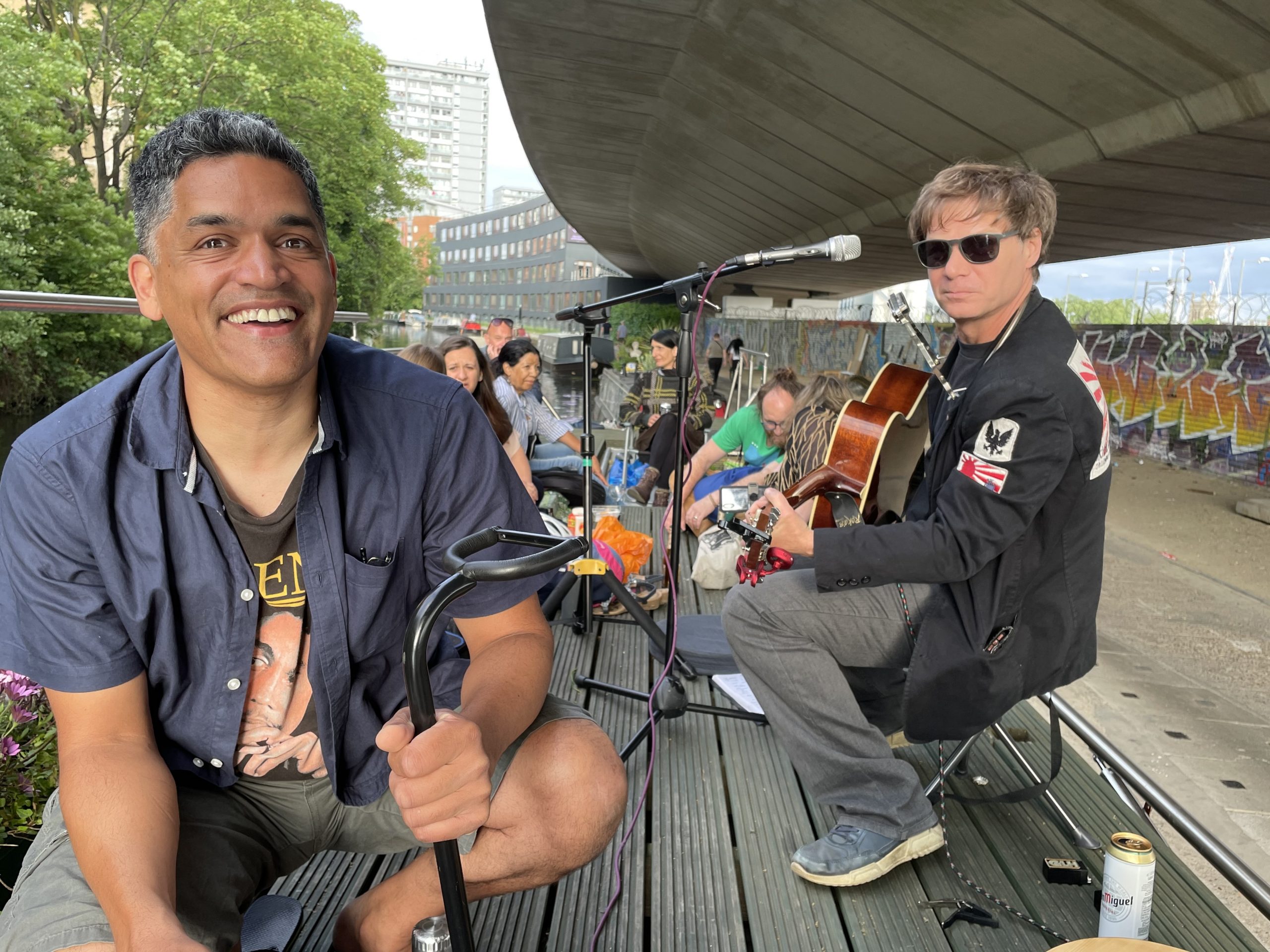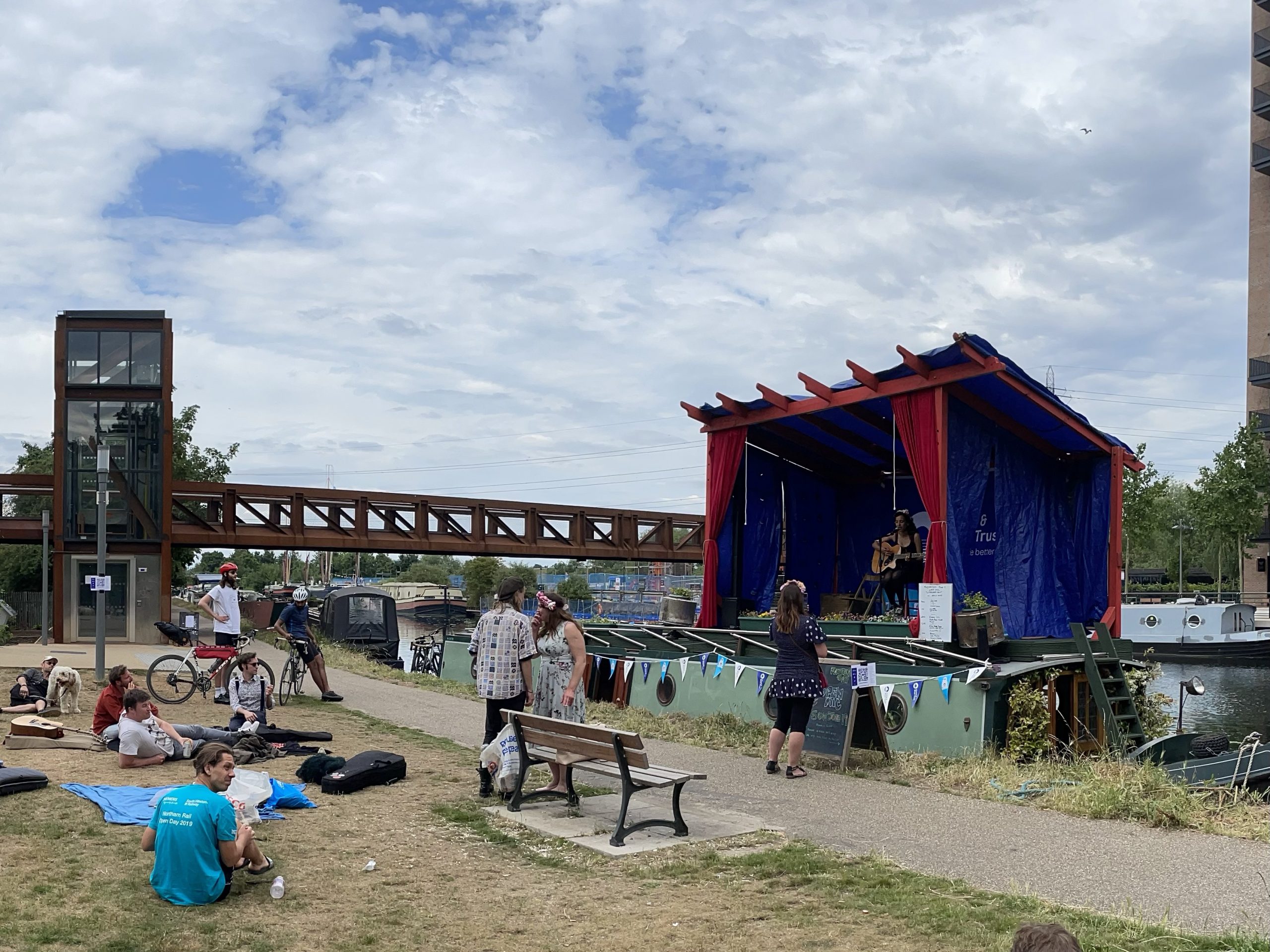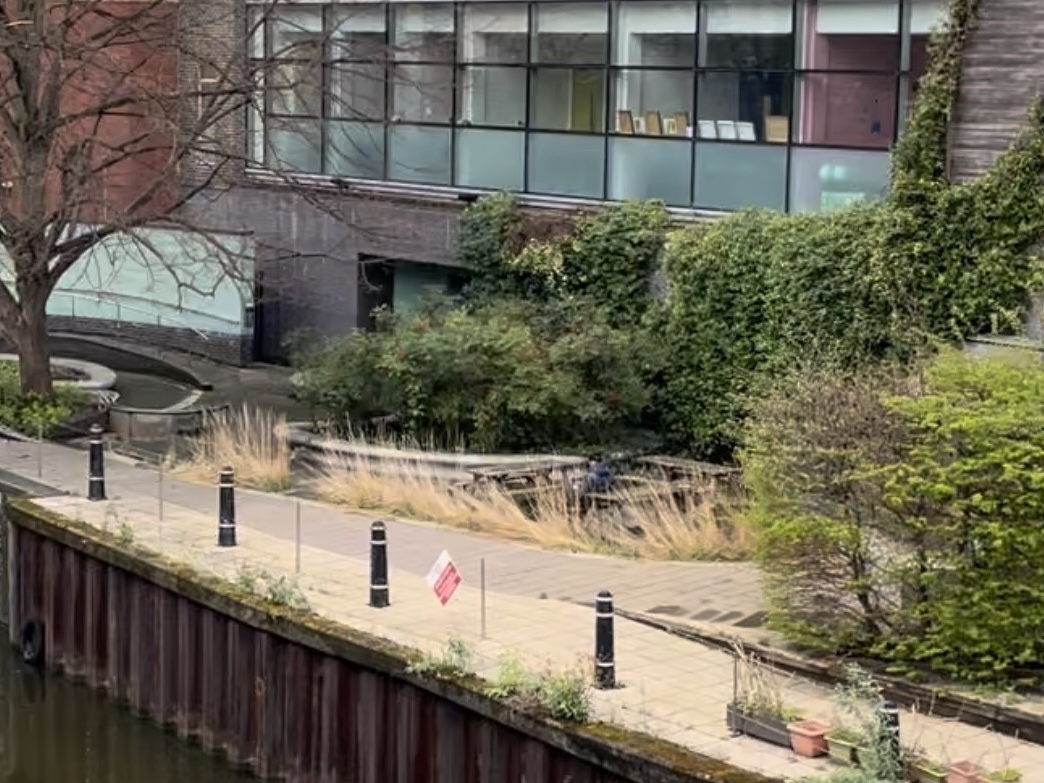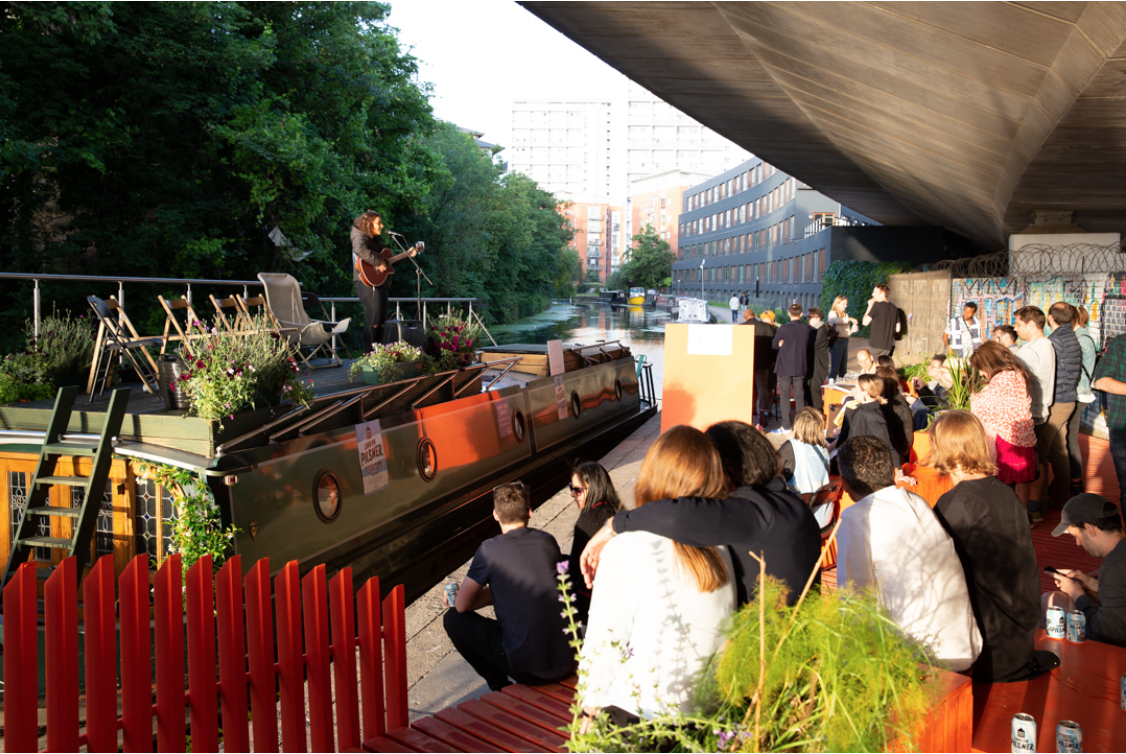
The problem: A population divided over climate change
Research shows that the people most scientifically informed about climate change are also most polarized about it. And –at 56% and 57% “scientifically literate’ — neither group performs that well! It seems that most of us come to our positions based less on what we know than on whom we listen, the respective tribes to which we consider ourselves as members and the opinions of those we trust.
Our proposition: Return to first principles (& poetry!)
But what if we gathered our own information? What if we collectively revisited secondary school science principles and considered the evidence ourselves? And — if we used an entertaining format for this process — could we develop fresh, non-threatening teaching tools to prompt productive conversations?
To test that proposition, the Royal Society of Chemistry, Loughborough University and Your Canal Boat CIC host workshops that convene chemistry teachers, researchers and other authorities with some of London’s best spoken word poets, and audiences eager to learn from both.
Results faster than we imagined!
Initial results are remarkable! Our November 2 workshop saw first-time poets go from discussion of the history of climate change to presenting their insights at an open mic THE SAME NIGHT, and a request from the Association of Scottish Shellfish Growers to publicly Martin Sanderson’s rhyming revelation of the climate change fighting properties of Scottish shellfish in their monthly newsletter.
Examining Popular myths from Skeptical Science
We looked at a climate reconstruction developed by Yige Zhang of Texas A&M University that compared CO2 levels with the distribution of ice on the planet going back 55MM years. THE CLIMATE SKEPTICS WERE RIGHT! Earth’s climate IS regularly in flux. With wild swings from when the North Pole had no ice (but did have alligators) to when New York City was buried under a mile of continental ice. www.SkepticalScience.com
What Causes an Ice Age?
But we also learned what drove those changes. How during World War l, while under house arrest, Serbian mathematician and astronomer Milutin Malankovitch — without benefit of a slide rule, let alone a computer — performed millions of calculations to show how the wobble of the Earth, and eccentricities in its orbit around the sun, caused regular variations in lengths of summer and winter to produce multiple ice ages prior to the dawn of human civilization.
Which helps explain another challenge voiced by climate skeptics: “Didn’t scientists warn us not long ago that the planet was cooling? That we were headed into another ice age?”
Climate Change Saves Us From the next Ice Age
In fact, the cycles Milankovitch identified place us at the end of a warm period, with ice poised to grow again. We might have been on our way to an Ice Age now, except that greenhouse gases, released by the birth of agriculture, 10,000 years ago, and even more so by Industrial Revolution, have overwhelmed Milankovitch’s cycles, and set temperature on an entirely different trajectory.
Or, as workshop participant Fiona Meeks more succinctly described in rhyme: “Ice Change, nice change. Farm Change, harm change.”
How we do it
Workshop participants can expect: (i) warm-up writing exercises led by different guest poets of local renown, (ii) a short presentation by a science authority, (iii) review of common misunderstandings that plague climate conversations, (iv) a writing session, and (v) a wrap-up with trial readings and feedback and a heads up on the next week’s poetry/science session.
Towards a December Poetry Slam
Workshops with writing sessions led by London poets, with input from guest science experts continue November 16, November 24, and December 1 in anticipation of a December 8 poetry slam at Loughborough University’s Hackney Wick campus.
Rules governing entry and award of £800 in prizes will be published on the event website: www.climateslam.com 11 November 2022.







